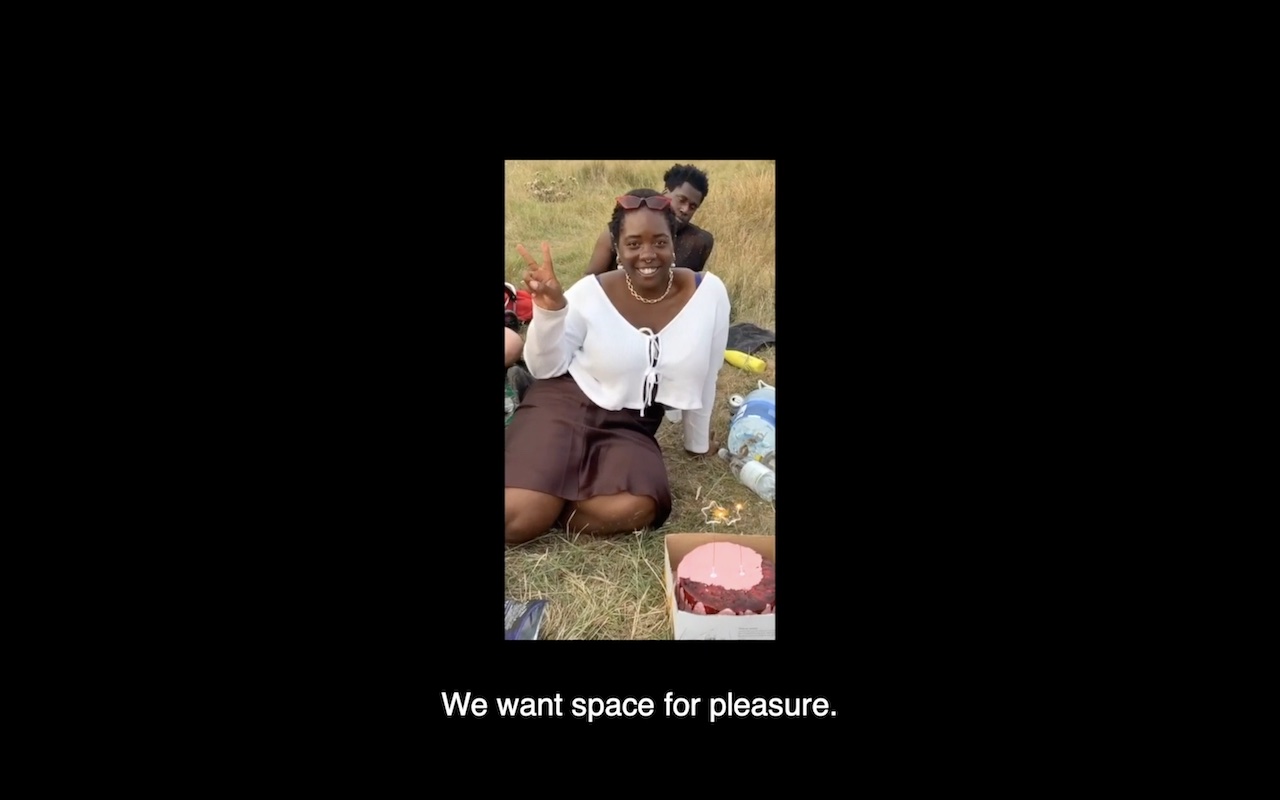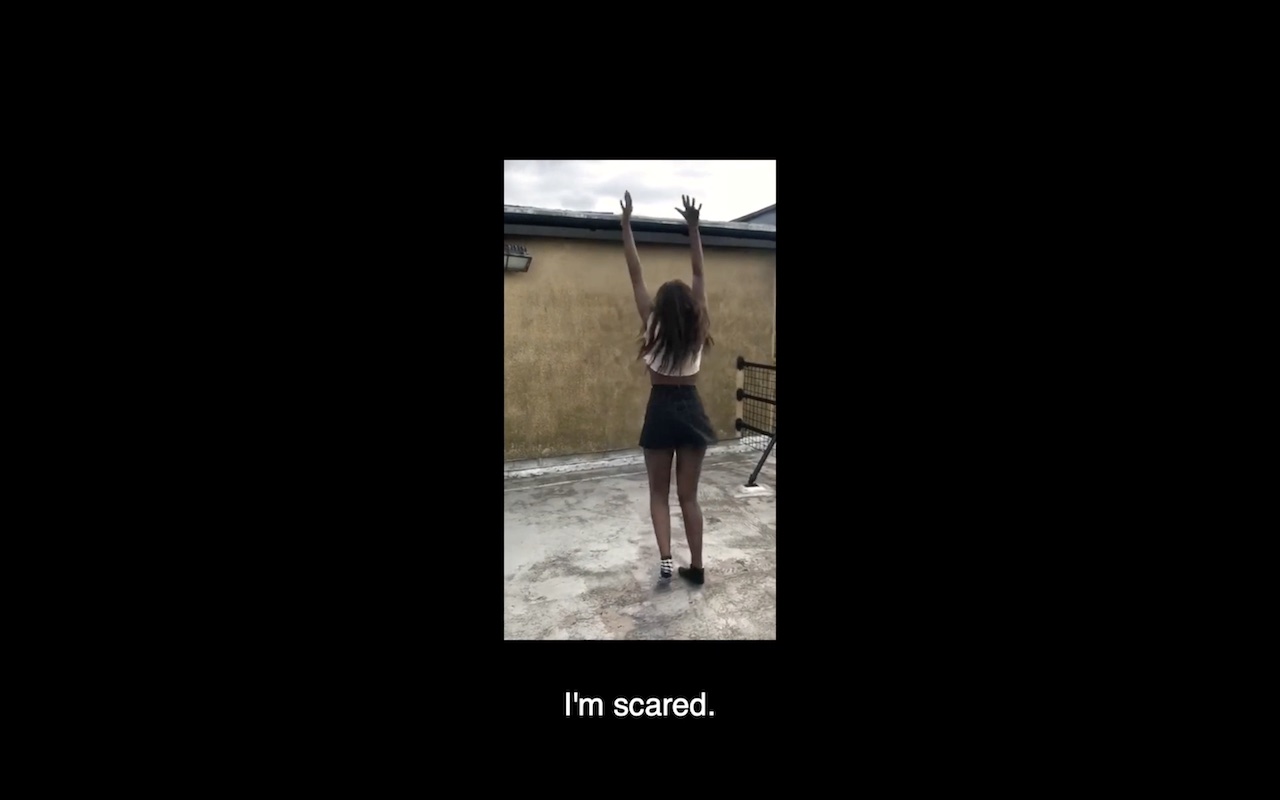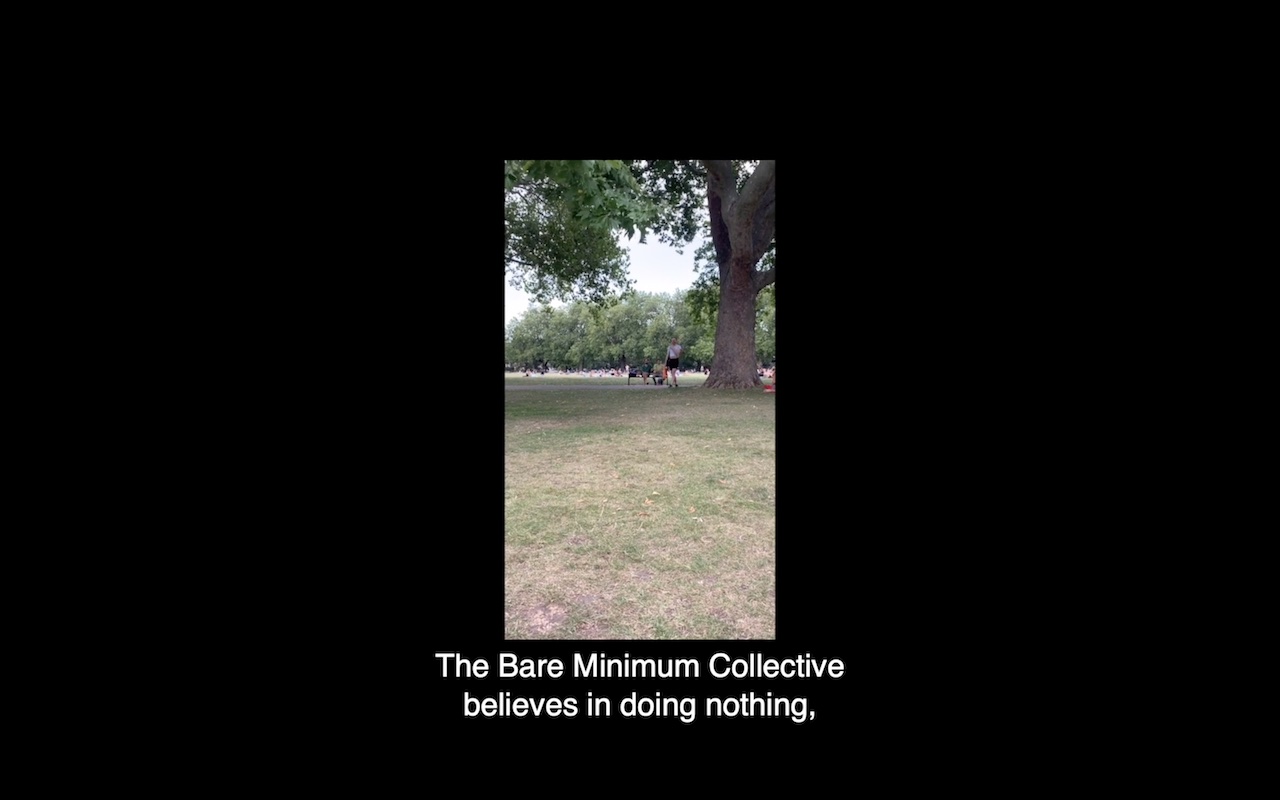After meeting during their undergraduate degrees at Cambridge University, the collective bonded over a hate of work. Here, we speak to members Lola Olufemi and Christie Costello about what becomes possible when we are lazy
Bare Minimum is a collective which eludes traditional definitions around work, aspirations and aims. Put simply, they are not interested in the desire for visibility and prestige that is often associated with the world of visual arts.
After meeting during their undergraduate degrees at Cambridge University, the collective bonded over a hate of work. At their core is the resistance to the idea that “leaving university means becoming an individual worker who has a singular trajectory that is really alienated from other people”. But being opposed to work under capitalism does not translate into an aversion of labour. Instead, Bare Minimum are envisaging a new world where the way we value labour and time is shifted to prioritise rest.
As member Lola Olufemi describes, an organising principle around laziness evolved naturally, out of a desire to do nothing. An escape route out of what Olufemi terms “this neoliberal hell-scape”, Bare Minimum became a space to hold one another accountable to creation, joy and pleasure. This is unsurprising, given the collective is founded first and foremost on pre-existing friendships with fun at their centre.
In the latest instalment of Creating Change, Jamila Prowse speaks to members Lola Olufemi and Christie Costello about what becomes possible when we are lazy.

Jamila Prowse: Could you talk me through how you met, and what encouraged you to form a collective?
Lola: We formed this friendship group, which came from different types of organising in the institution. This was further solidified in finding a queer scene and lots of dinners and parties we would throw. When we were responding with the violence of the institution and struggling against it, we needed places to rest and recoup, to voice our dissatisfaction. We decided to create that community ourselves.
Christie: We became friends because of Cambridge but it was also in some ways a necessity, because we were all being harmed by the institution that we were in. And we needed each other.
Lola: After graduation, around the time we were thinking about creating a collective, I remember going to see shows of collective work and realising that these are just people who gave themselves permission to work together. So what’s stopping us from providing ourselves with the same kind of structure; one that understands that our friendships are not working relationships, they are relationships that have evolved out of love and care and support. So why don’t we use that same frame to give ourselves the permission to make things?
Christie: Yeah and not just permission, but I think it’s also the possibility, right? Because a lot of us are disabled and want to make things but find that it’s really hard to do that on our own. And if we do stuff together, then it’s possible.

JP: How do you navigate the tension between a need to survive, both financially and emotionally, with a prioritisation of being anti capitalist and lazy?
Lola: I think the space that allows us to think about that question is that Bare Minimum isn’t a sole source of income for anybody in the collective. And then you can say, fuck work and actually mean it because you can take a break from this collective and your income isn’t jeopardised.
Christie: Bare minimum is a survival project in itself in a lot of ways, because it is us, and some of us are disabled. It’s usually disabled people who have to come through for other disabled people, even though we already don’t have as much capacity as people who aren’t disabled. It can sometimes be hard when you feel like shit yourself, to do the very material care work for someone else but there’s enough of us that we can do that.
JP: What do you think is possible when we prioritise rest and laziness over capitalist productivity?
Christie: What wouldn’t be possible, right? I think we’ve experienced some of it, because we’ve tried to create this different world. What’s possible is space and love. A way of loving that feels like it comes from a place of abundance rather than fear of scarcity.
Lola: When we say laziness and doing nothing, we mean, laziness and doing nothing within a politicised frame. In these other worlds we’re imagining we’re doing things but we do, not in service of capital, we do in service of each other.
Christie: There’s that very tongue in cheek ending of our manifesto, the Drake quote, ‘more life’. But that is what we would have, we would have more life. Because how we survive under capitalism isn’t life. We want more life, whatever that is.
Find out more about Bare Minimum, and read their manifesto here.

